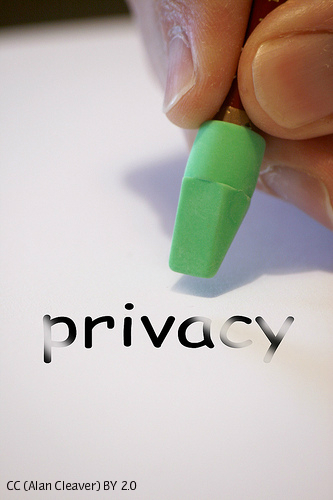The day we said, “Enough!”
by Digital Rights LAC on March 1, 2014
Activists and civilians throughout the world came together once again to defend our rights from government authorities and their attacks on our privacy. Can we succeed?
By Atilio Grimani
In 2013, we realized we were being spied on. This was new, for some. Denial: this sort of thing only happens to people with something to hide, to spies, public figures, politicians, terrorists, criminals, etc. Up until a few decades ago, it only happened in books and movies; average people were safe. Then something started to change. Movies and books like “1984” and “A brave new world” explored these ideas and inserted them in our minds: we are, indeed, being spied on. To most, this was just paranoid thinking. Who could possibly be interested in our day-to-day lives? Why would governments or companies invest massive resources into knowing my brand of coffee, what music I listen to or what books I read?
But in 2013, massive espionage by almighty entities passed the realm of fiction and made its way into worldwide news. Edward Snowden put an end to these suspicions. The U.S. government, together with allied nations, is systematically spying on us in complicity with IT companies. It’s a fact. Everything we do online generates data and that data is collected, analyzed and used for several ends.
The excuse is national security: the flag waved by all governments to justify their intrusions. But this argument is no longer as meaningful as it was in the past because the world has increasingly opened its eyes to the fact that what is at stake is privacy, the rule of law, and democracy itself.
Last February 11th was a Monday. It could have been a Tuesday. It could have been just another day, but it wasn’t. It wasn’t because, once again, throughout the world, different civil society organizations, website owners (over 6000 world-wide) and the general public united to demand that governments and institutions on a global level prohibit spying on citizens. They united in support of 13 international principles for the enforcement of the human right to communicational spying, which establishes the human rights that all States must respect when spying on citizens.
In the first years since Aaron Swartz’s death, millions of voices spoke out throughout the world in different ways. From filing a writ of amparo requesting information on how the agency responsible for controlling intelligence in Argentina actually works, to painting murals on Bogotá Street. Even videos (and more videos) were published for creating massive awareness; and protests were conducted in different countries. These efforts made global news; went viral on social networks; and sparked a discussion on blog posts and websites belonging to different international organizations.
These demands are not new. Different international agencies have voiced their concern on spying programs and how they affect freedom of speech, thought and privacy. Demands have sparked the revision of existing legislation to establish proper limitations on spying on private communications, requiring reasons of necessity, proportionality and consistency with human rights and principles of international law.
What is clear is that these demands are not the first and won’t be last. However, their effectiveness is yet to be determined. How will governments react? Will we be able to change state policies that stem from the deep roots of intelligence agencies? What must we do to recover our personal privacy? We know they are hearing us, but are they really listening to what we have to say?
Translated by Paula Arturo






